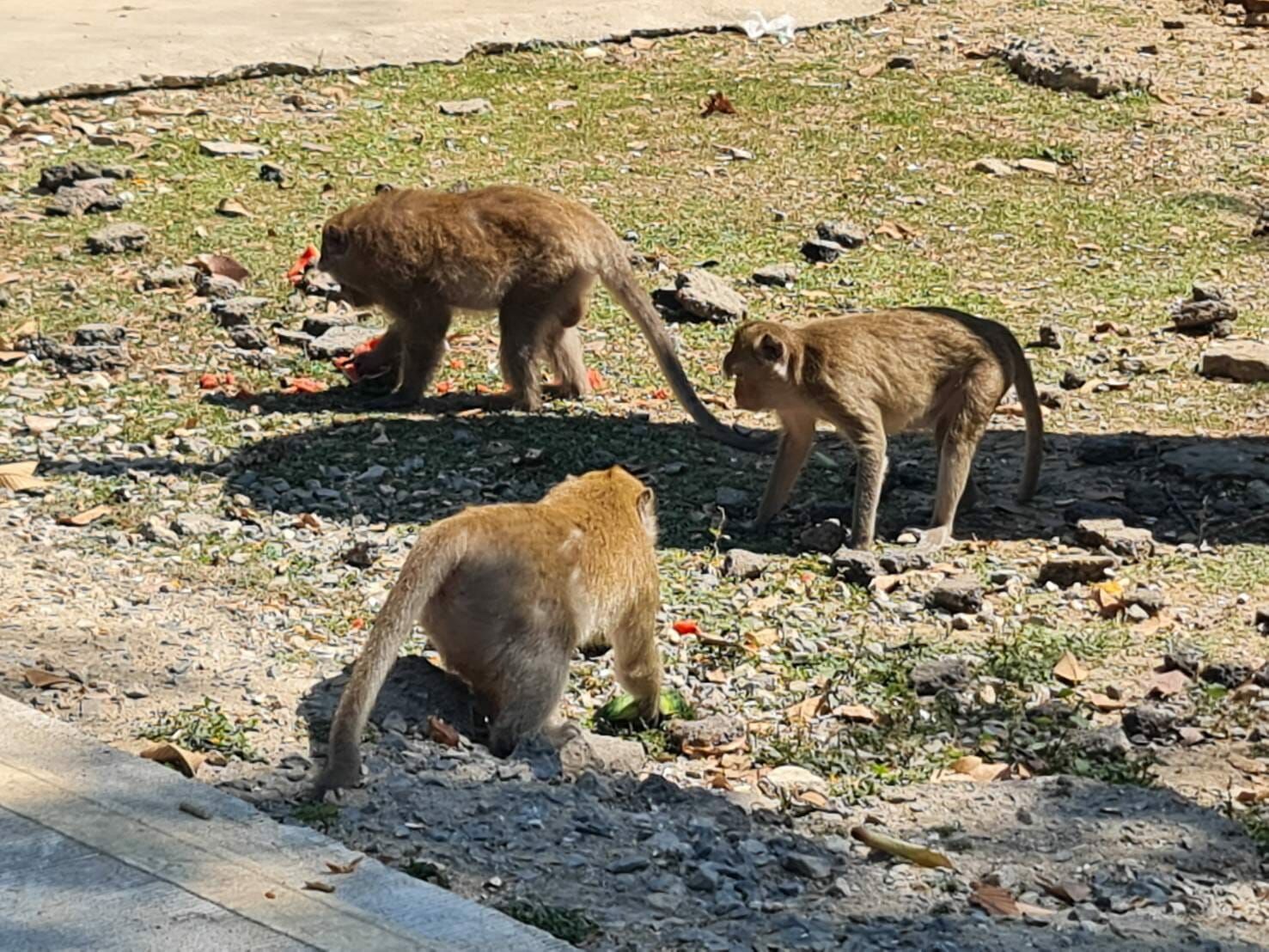Monkeys in central Thailand being trafficked abroad

A caretaker of the Khao Nor Temple in the central province of Nakhon Sawan urges authorities to investigate wildlife traffickers after the temple’s monkeys disappeared and over 50 tranquillizer darts were discovered in the area.
Khao Nor Temple is a popular attraction among domestic tourists. Thais usually visit the area to climb the limestone mountain inside the temple and enjoy the panoramic views.
Aside from the mountain, the temple is a favourite place for children because there are plenty of long-tailed macaques there. The animal became the signature of the temple after some locals spotted a giant mythical monkey living on the top of the mountain.
Anan, the caretaker, reported to Amarin TV on Monday that the monkey population at the temple had unexpectedly decreased.
There were no indications of disease or conflict, and no dead animals were found in the area. Anan suspects a wildlife trafficking gang after discovering over 50 tranquillizer darts in the temple since the end of last year.
He also mentioned that a trafficking gang had been apprehended in the area last year and believes they have returned.
The traffickers, posing as tourists, enter the temple, seek out secluded areas, and use dart guns to capture the monkeys.
Anan urges government intervention to protect the monkeys, as he and the monks find it difficult to monitor all visitors due to the temple’s large size and mountainous terrain.
Last year, Phonlawee Boochakiat, an officer from the Office on Combating Illegal Wildlife Trade, spoke to the Daily News about monkey trafficking.
Phonlawee said the monkeys were smuggled from the central provinces of Thailand and shipped to neighbouring countries like Cambodia, Vietnam, and Laos.
Phonlawee revealed that the monkeys were being used as ingredients in exotic dishes and as laboratory animals during the pandemic.
The traffickers carefully selected the monkeys to meet the demands of their customers and fetch a high price, with one monkey fetching anywhere from 800 to 2,000 baht.
Long-tailed macaques, also known as crab-eating macaques, are protected animals, and hunting or capturing them without permission is punishable by imprisonment of up to 10 years, a fine of up to one million baht, or both, according to Section 12 of the Wildlife Preservation and Protection Act.
The person who possesses monkeys for sale will face four-year imprisonment, a fine of up to 40,000 baht, or both, according to Section 20 of the act.
Latest Thailand News
Follow The Thaiger on Google News:


























